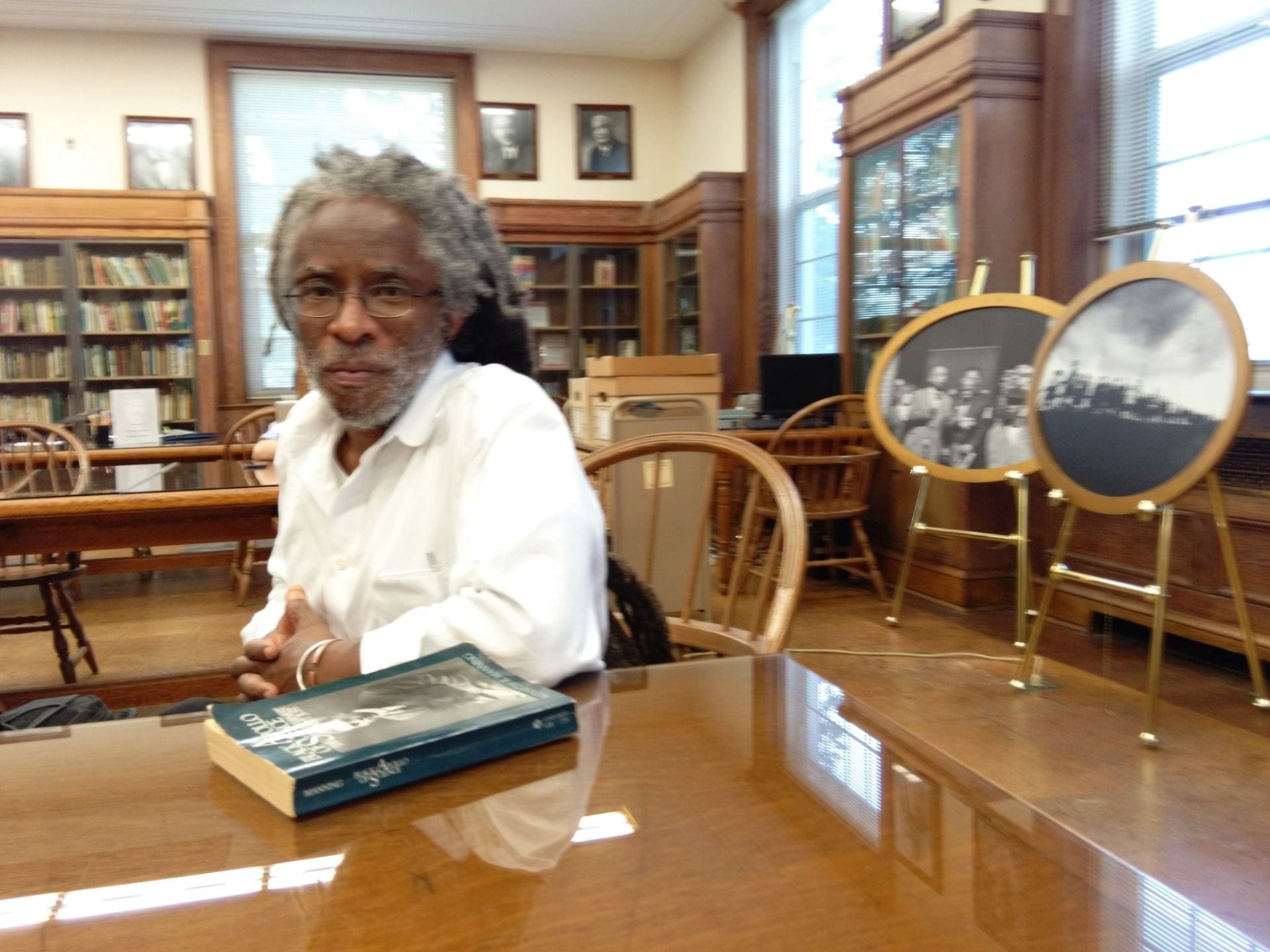Theodore Walker, Jr., will never forget the moment. After months spent sifting through old papers and documents, he came across the object of his 15-year search: the lost manuscript of a never-published book by the prominent scientist Ernest E. Just.
“It was definitely a happy dance moment,” said Walker, who is Associate Professor of Ethics and Society at Perkins.
The discovery stemmed from an interest in science that Walker had cultivated as an undergraduate at the University of North Carolina in Chapel Hill. Decades later, after earning a PhD in theological inquiry from the University of Notre Dame, and after joining the Perkins faculty in 1986, one of his UNC-CH teachers, the eminent history of religions scholar Charles H. Long, urged him to study the works of E. E. Just, an African-American scientist who made pioneering contributions to cell biology.
“At the time, that was a very curious thing,” said Walker. “I’m a theologian and an ethicist. Why was he encouraging me to study a biologist?”

Walker began to read the works of Ernest Everett Just (1883-1941), who taught biology in the department of zoology at Howard University from 1909 to 1941. He also read Black Apollo of Science: The Life of Ernest Everett Just (1983) by MIT historian of science Kenneth R. Manning. Manning’s book described how, in 1919, Just was the first scientist to observe that when a spermatozoon penetrates the surface of an egg cell, a “wave of negativity” radiates around the egg’s surface, repulsing all other sperm. In honor of his accomplishments, Just was featured in a 1996 U.S. Postal Service Black Heritage postage stamp.
In his many published papers and books, occasionally, Just made brief comments about the ethical implications of new discoveries in cell biology. In the last few years before his death in 1941, Manning’s book reported, Just wrote a work titled “The Origin of Man’s Ethical Behavior.” He died before finding a publisher, and the manuscript was lost. The possibility of finding that manuscript tantalized Walker, whose academic focus includes the link between science and ethics.

Armed with research funding from Perkins, and from the SMU University Research Council, and with help from archival researcher Lillie Jenkins Walker (who is his wife) and two cell biologists, W. Malcolm Byrnes and Stuart Newman, he searched for the manuscript. In May 2018, the Walkers found 251 manuscript pages preserved among the collected papers of E. E. Just at the Howard University Library Moorland-Spingarn Research Center. And it was even more intriguing and promising than he’d hoped.
“I was just blown over at what an astonishing book this was,” said Walker. “By then I had studied enough biology to appreciate the biology. But I was also stunned by his work in moral theory and its connections to science.”
The unpublished book presents a cell biology-rooted theory of the origin and evolution of ethical behaviors. According to Just, human ethical behavior evolved from previous creaturely behaviors originating from cooperative behaviors (mutual aid, not only competitive struggle/survival of the fittest) among our most primitive single cell ancestors. This was the first time that ethical behavior had been traced to evolution from primitive cellular origins by a cell biologist.
“Cooperation at the cellular level is something that was described in 2018 as a new and stunning discovery in cell biology,” he said. “We are just now catching up to where Ernest E. Just was during the 1930s.”
Just was ahead of his time, Walker added; one of the disadvantages of being ahead of one’s time was that readers were not prepared to listen to what he had to say in 1941. Before his death, Just had submitted the work to a number of reputable publishers, all of whom declined.
“The publishers didn’t see an audience for this work, and at the time, and I think they were correct,” Walker said. “Biologists were not going to be interested in a book about ethics, and ethicists were not in the habit of paying attention to biology. But today we have a huge body of literature called bioethics. I think the world is now prepared to hear what he has to say.”
Just had formulated a “law of environmental dependence” which asserted that our existence is dependent upon mutually beneficial relations to others and the environment.
“In the late 1930s, when he formulated this idea, nobody else was interested in talking about environmental dependence,” Walker said. “Today it is right on point. We recognize that we need to be thinking about bio-ethical relations to the environment.”
Walker and his team are now in the process of editing the manuscript to submit for publication. Some portions were handwritten and required transcribing. The body of the text of the manuscript is complete and publishable. The only remaining missing part is an annotated bibliography, which the researchers have been able to largely reconstruct.
“This manuscript, missing for 77 years, is destined to become an important book in the history of biology and ethics,” Walker said. “It is stunningly good, beautifully written and profoundly important.”
